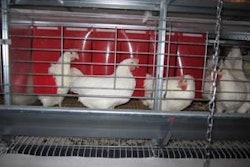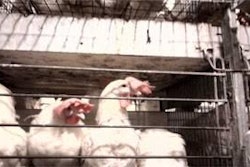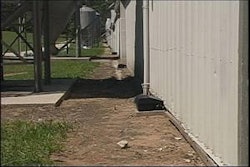The stunning July announcement of a layer welfare agreement between the United Egg Producers and the Humane Society of the United States included a pledge by both groups to lobby Congress to enact legislation turning the agreement into the law of the land. Agreeing to try and do something is one thing, but actually accomplishing the task could be an entirely different matter, so I asked some Washington, D.C., lobbyists whether or not they thought legislation encompassing the key points of this agreement could be passed by Congress.
Not for attribution
While there may be thousands of lobbyists in Washington, there are not that many who are dialed into animal agriculture issues. The lobbyists that I spoke with are familiar both with welfare issues and the poultry industry and asked not to be identified. The unanimous sentiment expressed was that getting legislation through this Congress codifying the UEP-HSUS agreement “is definitely going to be pushing a huge boulder uphill.”
One lobbyist suggested that while a tough sell, UEP and HSUS do have a chance at getting legislation passed, eventually. “I think UEP has a compelling argument relative to the patchwork of state laws that are out there. Their job is to convince Congress that it is necessary for Congress to preempt state law to fix the problem. Preemption is always difficult; it generally requires a demonstration of significant ongoing harm and disarray in the states that is causing either economic or social problems.” He went on to explain that preemptive legislation usually takes more than one Congress and that the egg industry has not suffered economic harm, yet. “Preemption takes more than one Congress.”
Could it pass?
One lobbyist laid out what he termed the perfect scenario for UEP. “In a perfect world, what would happen is that UEP and HSUS would put forth their arguments to Congress, there would be no objection or at least everyone would be neutral on it. Members of Congress absent that objection would look at this and do it quickly and easily since there are no objections. That scenario is so unlikely, because it is scary thing for producers.”
There has already been negative response to the announcement of the intention to seek federal legislation from the National Cattlemen’s Beef Association, National Pork Producers Council and the National Turkey Federation.
Considering the likelihood of the UEP-HSUS agreement becoming law a lobbyist said, “It is a tall order, but these are also strange times.”

















